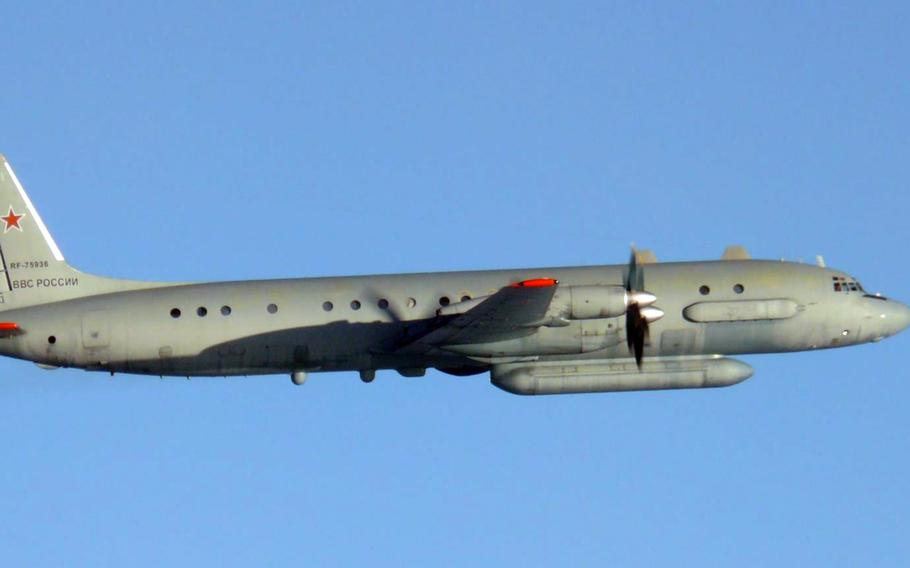
A Russian Ilyushin IL-20M surveillance plane flies near Japan on Feb. 12, 2025. (Japan Air Self-Defense Force)
For the third time in less than a week, a Russian intelligence-gathering plane was intercepted Sunday in the expansive Alaskan Air Defense Identification Zone, according to a NORAD news release that day.
NORAD scrambled two fighters, an early warning and control aircraft and two aerial refuelers to intercept the Ilyushin IL-20 Coot, according to the release.
NORAD responded to two other Coot electronic signals gatherers in the Alaskan zone, the first on Wednesday and a second on Thursday. In both cases, the command responded with two F-16 Fighting Falcons, an E-3 Sentry and one KC-135 refueler.
A spokesperson for the command was not immediately available after close of business Sunday to respond to questions regarding details of the most recent flight.
In all three cases, NORAD said Russian intrusions into the zone occur regularly and typically do not present a threat to U.S. or Canadian security. None of the Russian flights entered U.S. or Canadian airspace, according to NORAD.
An air defense identification zone, or ADIZ, extends into international airspace 12 miles from the coastline, where sovereign airspace. The Alaskan zone covers a vast area that includes the Aleutian Islands and large portions of the Arctic Ocean, the Bering Sea and the northern Pacific.
While not universally recognized, the zone serves as a buffer area where aircraft are expected to identify themselves for national security purposes.
Wednesday’s flight took the plane approximately 30 miles from St. Lawrence Island in the Bering Sea, Canadian Armed Forces Capt. Rebecca Garand, a NORAD spokeswoman, said by email the next day. The island is a U.S. territory 140 miles from Alaska and 46 miles from Russia.
Another Russian IL-20 flew inside the Alaskan defense zone Thursday for approximately two hours and four minutes, Garand wrote in an email Friday. The Russian plane passed approximately 125 miles from Cape Lisburne on the Chukchi Sea in northwest Alaska, she said.
On Sept. 23, a Russian Su-35 fighter made a close pass of an American interceptor, which drew a rebuke as unsafe and unprofessional from the head of NORAD at the time.